#opioids
Text
I know shits getting bad again when I go on drugblr
#drugblr#high#weed#zaza#cough syrup#dextromethorphan#dxm#pills#opioids#meth#smoke meth#heroin#drugs#hard drugs#snort pills#pill lines#xanax#molly#mdma#ecstasy#lean#sizzurp#codeine
415 notes
·
View notes
Text
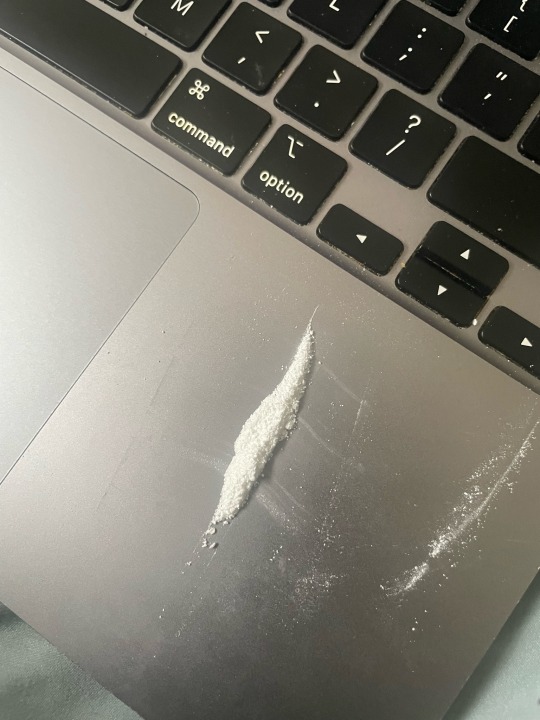
Lines right now <3
#cocaine#drugs#alcohol#coke#girls who snort#lana del ray#lanadelray#lines#snorting#coke lines#snorting opioids#opioids#opiate#opiods
110 notes
·
View notes
Text

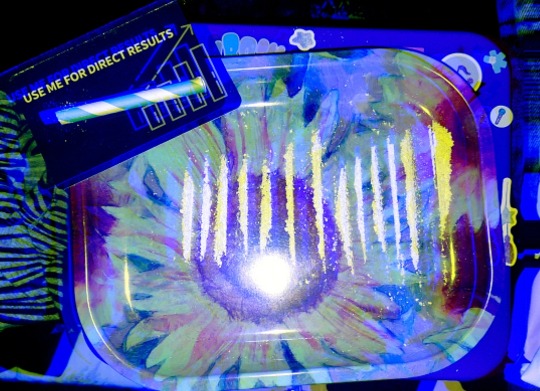
From before my shower, starting to nod fucking hard rn 🤤 // pure morphine powder 🤍
#drugblr#drugs#drug blog#drug addict#drug abuse#addiction#addict#junkie#junkie girls#substance abuse#girls who do hard drugs#girls who do lines#girls who snort#girls who do pills#nod squad#nodsquad#opiods#opioids#opiates#opiaddict#opiodaddiction#hard drugs#opiate addiction#snorting opioids#snorting opiates#snorting pills#pillhead#morphine#painkiller#snorting drugs
71 notes
·
View notes
Text
Fuck the DEA!
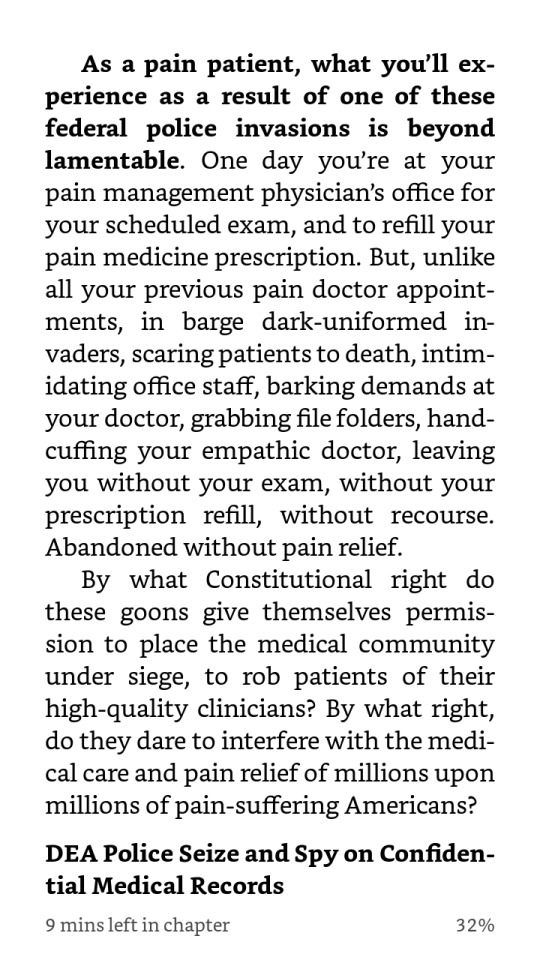

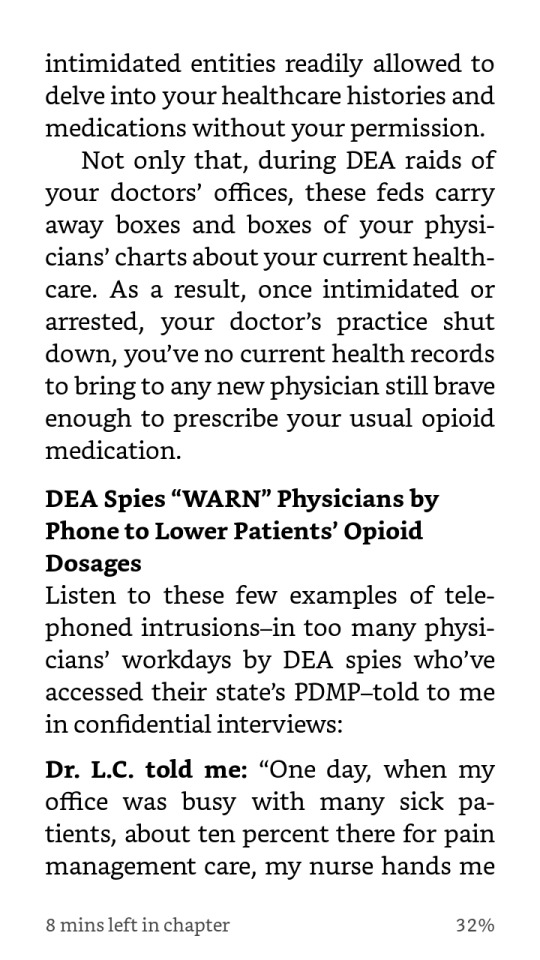

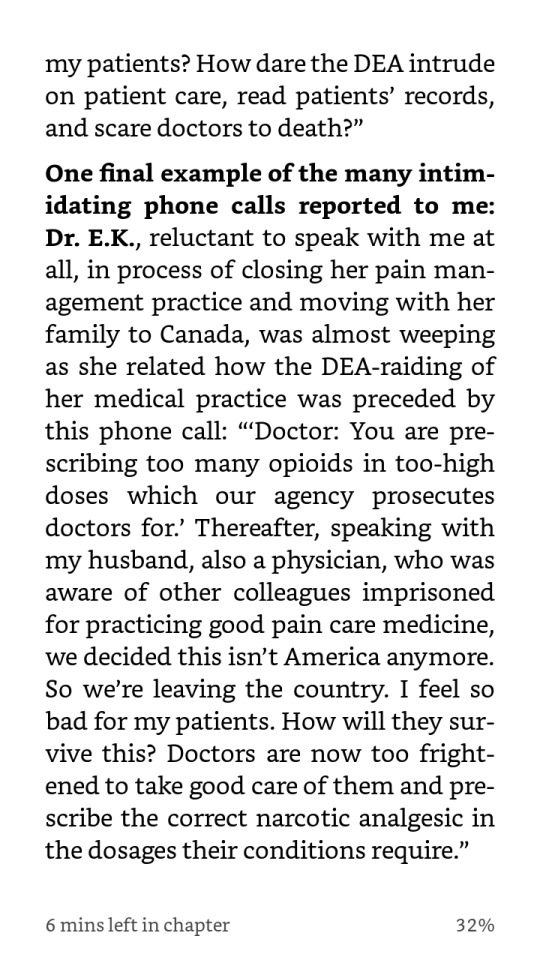
From American Agony by Dr Helen Borel
People always be like "of course people with painful diagnoses will get opioid pain medication!" But the reality is those in charge care more about reducing deaths by reducing pills, pain patients be dammed.
If restriction stopped addiction we'd still be under prohibition. Science based addiction recovery efforts allow for drug use until the person is ready to quit. But that would require too much effort and empathy.
#American agony#Book#chronic pain#Pain patients#Dea#Opioids#opioid crisis#disability#addiction#ableism#spoonies#chronic illness
87 notes
·
View notes
Text





Sorry for making these so late, I hardly check my tumblr lmao. You can use them as long as you don't claim them as yours. >_<
#early web#blinkies#old internet#2000s nostalgia#webcore#2000s web#drugsblinkies#drugblinkies#spacehey#mephedrone#meth#mushrooms#lexapro#opioids
117 notes
·
View notes
Text
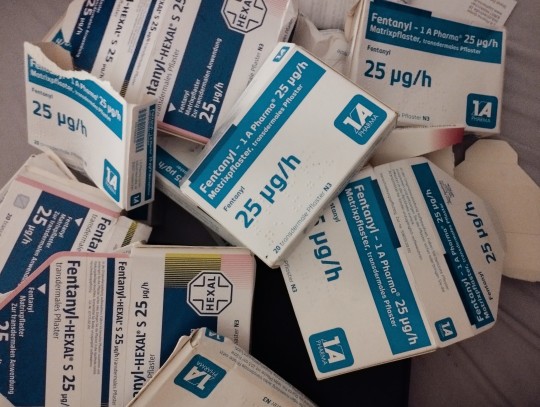
68 notes
·
View notes
Text
the silence in my head when i’m on pain killers is magical.
#brain#drugs are wonderful#i love drugs#drugs#pills#girls who do pills#girls who do drugs#opioids#opiates#pain killers#percocet#percs#perks#mentally fucked#borderline#bpd#depression#anxiety#social anxiety#ocd#adhd#autism#ed#bipolar#cptsd#whatever the fuck else
100 notes
·
View notes
Text
I was trying to look up opioid intolerance because medical staff don't listen to me when I say they aren't very effective and just make me feel terrible because I just feel super nauseous and dizzy. Vicodin was the worst for that
So I'm reading this on an article about opioid allergies and the highlighted part really pisse me off
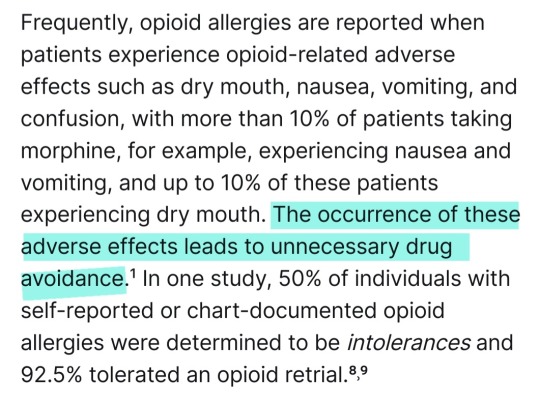
(source)
"The occurrence of these adverse effects leads to unnecessary drug avoidance."
It's not unnecessary! I would rather be in pain then be in slightly less pain but feeling like I'm gonna hurl and the room is spinning
It's necessary because I am more functional when I don't take opioids not because I'm high (it never gives me any sort of altered state. I'm not even pain free) but because I'm too busy trying not to puke
And I still can't find any reference to opioids just not working very well if it's not about addiction
I have never had an opioid addiction because why would I when they never worked very well in the first place and made me puke?
This just frustrates me because no one listens when I say they don't work and they act like I want more
49 notes
·
View notes
Text
Been off fentanyl for 5 weeks now. And it's all been weird for me.
I miss the glowing euphoria I got. I miss the feelings of bliss and warmth I got. I miss how I would gaze into the mirror, absorbed in my high, and love how I looked. I really loved myself and the world around me for a brief period of time. The high was worth dying for in my mind.
But then I remember how I'd have to hide my stash, having to worry about the possibility of getting found out or arrested, how I'd get weird looks, how I'd get called a junkie, how I lost friends, and how I was found overdosing. I felt alone and that my only comfort was fentanyl. I would tell myself that fentanyl would never leave me. But now that it has, I feel kinda lost. Sometimes I still miss it. I found happiness but at what cause.
28 notes
·
View notes
Text

Love being sedated (dillys<3)
#opioids#opiate#noddsquad#cocaine#nodding#drugs#alcohol#coke#girls who snort#lana del ray#lanadelray#lines#snorting#coke lines
62 notes
·
View notes
Text
The Sacklers woulda gotten away with it if it wasn't for those darned meddling feds
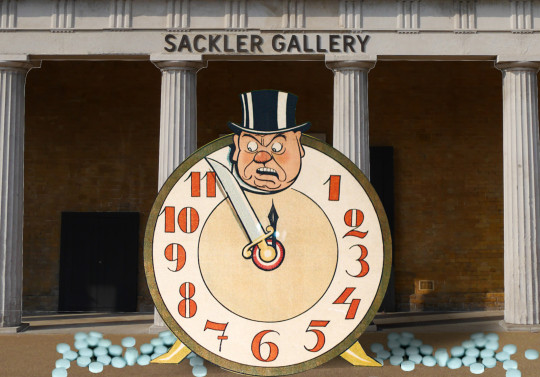
The saga of the Sacklers, a multigenerational billionaire crime family of mass-murdering dope-peddlers, is an enraging parable about how the wealthy, the courts, and sadistic high-powered lawyers collude to destroy the lives of millions, profit handsomely, and evade justice.
But there's an unexpected twist to this tale. After the Sacklers procured a sham bankruptcy that denied their victims the right to sue while leaving their fortune largely intact, the Supreme Court – yes, this Supreme Court – saw through the scam and froze the process, pending a full hearing:
https://www.nytimes.com/2023/08/10/us/supreme-court-purdue-pharma-opioid-settlement.html
The Sacklers basically invented modern, legal dope peddling. Arthur Sackler, the family's original crime-boss, revived the practice of direct-to-consumer drug marketing, dormant since the death of the medicine show, to peddle Valium. An aggressive and shrewd lobbyist, Arthur built the family fortune and, more importantly, its connections:
https://www.timesofisrael.com/how-the-sackler-family-built-a-pharma-dynasty-and-fueled-an-american-calamity/
A generation later, the family's business company created Oxycontin, and procured misleading and false research about the drug's safety kickstarting the opioid epidemic, whose American body-count is closing in on a million dead. Armed with inflated claims about opioid safety, the Sacklers' pharma reps bribed, cajoled and tricked doctors into writing millions of prescriptions for oxy.
This scam had a natural best-before date. As ODs flooded America's ERs and bodies piled up in America's morgues, it became increasingly clear that something was rotten. The Sacklers pursued a multipronged campaign to keep the truth from coming to light, and to keep the billions flowing.
On the one hand, they hired McKinsey to find novel ways to encourage doctors to keep writing prescriptions and to convince pharmacists to turn a blind eye to abuse. McKinsey had all kinds of great ideas here, including paying pharma distributors cash bonuses for every overdose death in their territory:
https://www.nytimes.com/2021/02/03/business/mckinsey-opioids-settlement.html
When the issue of these deaths came up in public, the Sacklers blamed "criminal addicts" for their own misery, stigmatizing both people who desperately needed pain relief and the people who'd been deliberately hooked on the Sacklers' products. The legacy of this smear campaign is still with us, both in the contempt for people struggling with addiction and in the cruel barriers placed between people in unbearable agony and medical relief.
But mostly, the Sacklers kept their names out of it. They laundered their reputations by donating a homeopathic fraction of their vast drug fortune to art galleries and museums in a bid to make their names synonymous with good deeds.
The Sacklers didn't invent this trick. Think of the way that history's great monsters – Carnegie, Mellon, Rockefeller, Ford – are remembered today for the foundations and charities that bear their names, not for the untold misery they inflicted on their workers, their crimes against their customers, and the corruption of governments.
But the Sacklers made those Gilded Age barons seem like amateurs. They invented a modern elite philanthropy playbook that Anand Giridharadas documents in his must-read Winners Take All, about the charity-industrial complex that washes away an ocean of blood with a trickle of money:
https://memex.craphound.com/2018/11/10/winners-take-all-modern-philanthropy-means-that-giving-some-away-is-more-important-than-how-you-got-it/
As part of this PR exercise, the individual Sacklers kept their names and images out of the public eye. For years, there were virtually no news-service photos of individual Sacklers. When journalists dared to criticize the family, they used vicious attack-lawyers to intimidate them into retractions and silence (I was threatened by the Sacklers' lawyers).
They also worked their media mogul pals, like Mike Bloomberg, who added their names to the "Friends of Mike" list that Bloomberg reporters were required to consult before writing negative coverage:
https://pluralistic.net/2020/02/29/friends-of-mike-enemies-of-the-people/#sacklerbergs
But Stein's Law says that "anything that can't go on forever will eventually stop." As lawsuits mounted, the Sacklers found themselves increasingly synonymous with death, not charitable works. But like any canny criminal, the Sacklers had a getaway plan.
First, they extracted vast sums from Purdue and shifted it into offshore financial secrecy havens:
https://www.reuters.com/article/us-purduepharma-bankruptcy/sacklers-reaped-up-to-13-billion-from-oxycontin-maker-u-s-states-say-idUSKBN1WJ19V
Even as this money was disappearing into legal black holes, the Sacklers demanded – and received – extraordinary protection from the courts, who aggressively sealed testimony and materials presented through discovery:
https://www.reuters.com/investigates/special-report/usa-courts-secrecy-judges/
When this gambit finally failed, the Sacklers insisted that were down to their last $4 billion, and, with trillions in claims pending against them, they declared bankruptcy.
When a normal person declares bankruptcy, they are required to divest themselves of nearly everything of value they possess, and then still find themselves hounded by cruel arm-breakers who deluge them with threatening calls and letters:
https://pluralistic.net/2021/05/19/zombie-debt/#damnation
But for the richest people in America, bankruptcy is merely a way to cleanse one's balance sheet of liabilities for any atrocity you may have committed on the way, without giving up your fortune.
The Sacklers are a case-study in how a corrupt bankruptcy can be conducted.
Purdue Pharma presents a maddening case-study in the corrupt benefits of bankruptcy. When it was announced in March, many were outraged to learn that the Sacklers were going to walk away with billions, while their victims got stiffed.
First, they converted their victims' right to compensation into "property" that the Sacklers themselves owned. This transferred jurisdiction over these claims from the regular court system to the bankruptcy court. A bankruptcy judge – not a jury – would decide how much each of these claims was worth, and then what how much of that worth these victims (now recast as creditors) would be entitled to through the bankruptcy.
Thus tens of thousands of claims were nonconsensually settled without a trial, by an administrative judge with no criminal jurisdiction, not a federal judge who'd undergone Senate confirmation:
https://pluralistic.net/2021/03/31/vaccine-for-the-global-south/#claims-extinguished
These "coercive restructuring techniques" are not available to everyday people who are drowning in student debt or credit-card bills – these are the exclusive purview of the wealthiest Americans, who enjoy a completely different bankruptcy system that is rigged in their favor.
Three judges – David Jones and Marvin Isgur of Houston and Bob Drain of New York – hear 96% of the country's large corporate bankruptcies:
https://www.creditslips.org/creditslips/2021/05/judge-shopping-in-bankruptcy.html
These judges are unbelievably horny for corporations, embracing a legal theory "that casts the invention of the limited liability corporation alongside that of the steam engine as a paradigmatic development in the pursuit of prosperity":
https://prospect.org/justice/how-do-you-solve-a-problem-like-the-sacklers-purdue-pharma-bankruptcy/
Now there are more than three bankruptcy judges in America, so how do the nation's biggest companies get their cases heard by these three enthusiastic Renfields for corporate vampirism?
They cheat.
For example: when GM was facing bankruptcy, it argued that it was a New York company on the basis that it owned a single Chevy dealership in Harlem, and got in front of Judge Drain.
The Sacklers were – characteristically – even more brazen. They really wanted to get their case in front of Judge Drain, the nation's most enthusiastic supporter of "third party releases," through which bankrupt billionaires can wipe the slate clean, securing dismissals of all claims by the people they wronged.
Drain is also uniquely hostile to independent examiners, "an independent third-party appointed by the court to investigate 'fraud, dishonesty, incompetence, misconduct, mismanagement, or irregularity…by current or former management of the debtor."
https://papers.ssrn.com/sol3/papers.cfm?abstract_id=3851339
If you're the Sacklers, hoping to keep two thirds of your billions and extinguish all claims by your victims, there is no better helpmeet than Judge Robert Drain of the Southern District of New York.
So, 192 days before filing for bankruptcy, the Sacklers opened an office in White Plains, New York (a company may claim jurisdiction in a specific court once they've operated a business there for 180 days).
Then they filed a bankruptcy in which they altered the metadata on their casefile, inserting the code for a Westchester county hearing into the machine-readable, human-invisible parts of the documents they uploaded to the federal Case Management/Electronic Case Files (CM/ECF) system (they also captioned the case with "RDD, for "Robert D Drain").
They chose their judge, and the judge obliged. UCLA Law's Lynn LoPucki is one of the leading scholars of these bankruptcy "megacases," and has written extensively on why these three judges are so deferential to corporate criminals seeking to flense themselves of culpability. She sees judges like Drain motivated by "personal aggrandizement and celebrity and ability to indirectly channel to the local bankruptcy bar. The judge is the star and the ringmaster of a megacase – very appealing to certain personalities."
Thus, these judges are "willing and eager to cater to debtors to attract business…[an] assurance to debtors that…these judges will not transfer out cases with improper venue or rule against the debtor…"
https://www.fulcrum.org/concern/monographs/02870w66d
This kind of judge-shopping goes beyond the Sacklers; the cases that Drain and co preside over make a mockery of the idea of America as a land of equal justice. "Prepack" and "drive-through" bankruptcies are reliable get-out-of-jail-free cards for capitalism's worst monsters: private equity firms.
Whether PE murdered your grandmother by buying her care-home and putting each worker in charge of 30 seniors:
https://www.washingtonpost.com/local/portopiccolo-nursing-homes-maryland/2020/12/21/a1ffb2a6-292b-11eb-9b14-ad872157ebc9_story.html
or poisoned your kids by filling your neighborhood with carcinogens:
https://www.webmd.com/special-reports/ethylene-oxide/20190719/residents-unaware-of-cancer-causing-toxin-in-air
limited liability wipes the slate clean.
30% of America's bankruptcies are private equity companies using the bankruptcy system to wipe away claims for their misdeeds, while keeping a fortune, thanks to the shield of limited liability.
Take Millennium Health, JamesS lattery's fake drug-testing company, which promised to help nursing homes figure out whether seniors were abusing (or selling) their meds by testing their piss for angel dust and other drugs. Slattery defrauded Medicare and Medicaid for millions, borrowed $1.8 billion (Slattery got $1.3 billion of that). He eventually walked away from this fraud after paying a mere $256m to settle all claims, and kept a fortune in assets, including the 40 vintage planes his private company ("Pissed Away LLC" – I am not making this up) owned:
https://prospect.org/justice/how-do-you-solve-a-problem-like-the-sacklers-purdue-pharma-bankruptcy/
For the wealthy, bankruptcy is the sport of kings, a way to skip out on consequences. For the poor, bankruptcy is an anchor – or a noose. This is by design: judges who preside over elite bankruptcies speak of their protagonists as heroic "risk takers" and tiptoe around any consequences, lest these titans be chained to a mortal's fate, costing us all the benefits of their entrepreneurial genius.
PE companies helped the Sacklers design their own bankruptcy strategy, and it was a standout, even by the standards of Bob Drain and his kangaroo bankruptcy court. But now, the Supreme Court has pumped the brakes on the whole enterprise.
The judges ruled that the exceptions the Sacklers took advantage of were intended for bankrupts in "financial distress" – not billionaires with vast fortunes hidden overseas. In so doing, the court threatens all manner of corrupt arrangements, from "the Boy Scouts, wildfires and allegations of sexual abuse in the church diocese — where third parties get a benefit from a bankruptcy they themselves aren’t going through.”
The case was brought by the DoJ's US Trustee Program, which lost in the Second Circuit when it tried to halt the Purdue bankruptcy and argued that the Sacklers themselves had to declare bankruptcy to discharge the claims against them.
Now the Supremes have hit pause on the bankruptcy the Second Circuit approved, and will hear the case themselves. It's only one step on a long road, but it's an unprecedented one. Some of the country's filthiest fortunes are riding on the outcome.

Going to Defcon this weekend? I’m giving a keynote, “An Audacious Plan to Halt the Internet’s Enshittification and Throw it Into Reverse,” tomorrow (Aug 12) at 12:30pm, followed by a book signing at the No Starch Press booth at 2:30pm!
https://info.defcon.org/event/?id=50826

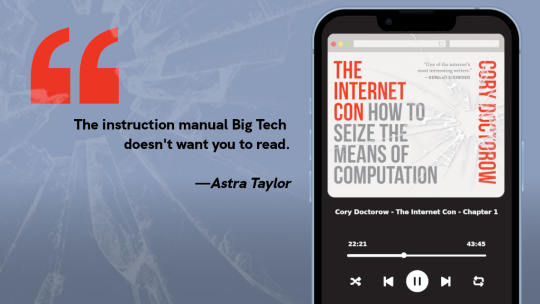
I’m kickstarting the audiobook for “The Internet Con: How To Seize the Means of Computation,” a Big Tech disassembly manual to disenshittify the web and bring back the old, good internet. It’s a DRM-free book, which means Audible won’t carry it, so this crowdfunder is essential. Back now to get the audio, Verso hardcover and ebook:
http://seizethemeansofcomputation.org

If you'd like an essay-formatted version of this thread to read or share, here's a link to it on pluralistic.net, my surveillance-free, ad-free, tracker-free blog:
https://pluralistic.net/2023/08/11/justice-delayed/#justice-redeemed

Image:
Edwardx (modified)
https://commons.wikimedia.org/wiki/File:Serpentine_Sackler_Gallery,_June_2016_05.jpg
CC BY-SA 4.0
https://creativecommons.org/licenses/by-sa/4.0/deed.en
#scotus#us trustee program#drive-through bankruptcy#coercive restructuring techniques#blood money#opioids#opioid epidemic#oxycontin#purdue pharma#elite philanthropy#reputation laundering#elite impunity#sacklers#judge drain#sdny#bankruptcy#bankruptcy shopping#friends of mike#pluralistic#debt#mckinsey
169 notes
·
View notes
Text
time for my pet PSA again:
if you or a loved one or friend are on an SSRI, please be aware that SSRIs inhibit activity of a liver enzyme that metabolizes some opioids. if you have surgery or an injury/emergency and your pain meds are not working, let your doctor know you might need a different class of pain meds. this info is from a major nine-year study and many doctors STILL don't know to flag contraindications for SSRIs in patient charts.
if you or a loved one are an addict, please be aware that SSRIs increase the risk of opioid overdose because of the uptick in dosage to achieve a high. (if nothing else, make sure you carry narcan in some form for emergencies. goodrx has information on where to get it for free or reduced cost in the united states, or you can search "free narcan" and your state or county in your favorite search engine. this is also useful for anyone who may have an opioid rx for pain management, in case of accidental overdose in the home.)
the study mentioned in the NPR article is here.
#narcan#opioids#ssri#medication#health#tw overdose#patient advocacy#signal boost#please#emergency#surgery
106 notes
·
View notes
Text
Tapering patients on long-term opioid therapy results in more emergency department visits and hospitalizations, according to a large new study that found reduced opioid use was particularly disruptive to the healthcare of pain patients with diabetes and high blood pressure.
The study by researchers at University of California Davis is the latest to document the “unintended negative consequences” of policies that limit opioid prescribing. A previous study by the same research team found that tapering raises the risk of an overdose and mental health crisis.
In their latest study, UC Davis researchers analyzed health data for over 113,000 patients who were on opioid therapy for at least 12 months, comparing those who were not tapered to those who had their dose reduced by 15% or more.
Their findings, published in JAMA Network Open, showed that tapering significantly increased hospitalizations and ED visits, while at the same time reducing the number of primary care (PC) visits. Researchers think the latter is at least partially due to “ruptures in relationships” with primary care providers (PCPs) due to patient dissatisfaction with tapering. (Read more at link)
417 notes
·
View notes
Text
btw my political position is that everyone who wants opioids should get them for free forever no matter the reason
121 notes
·
View notes
Text
i’ll be getting high tonight if anyone needs me.
#brain#don’t threaten me with a good time#i love drugs#see you on the other side#girls who do drugs#girls who do pills#drugs#pills#pillhead#cough syrup#dxm#opiates#opioids#vicodin#norco#lortab#hydrocodone
163 notes
·
View notes